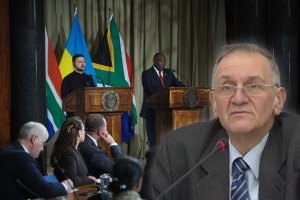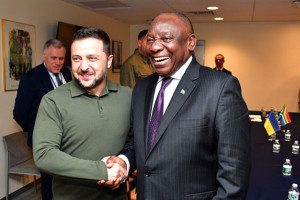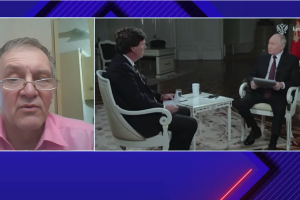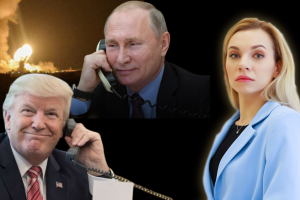First year of work of the NAPC: high expectations, poor results
August 15 marked a year from the official start of work of the National Agency for the Prevention of Corruption (NAPC). On this occasion, Director of the NAPC Natalia Korchak and head of the Civil Council at the NAPC Viktor Taran held a special briefing at which they reported the results of the first year of work of the anti-corruption body. While the head of the NAPC for the most part spoke about the achievements of her agency, the assessment of the civil society representative was considerably more critical. That day the Competition Commission of the NAPC elected the fourth member of this body (to replace Ruslan Riaboshapka, who tendered his resignation in June of this year). After approval of his candidacy by the Cabinet of Ministers the new member of the NAPC will be the lawyer Oleksandr Seryohin. On August 18, another member of the NAPC Ruslan Radetskyi unexpectedly tendered his resignation.
Over the first year of its functioning, the NAPC was overall unable to meet fairly high expectations, which society had placed on the agency. The results of its activity in two of the most crucial areas of its responsibility – review of electronic declarations of officials and politicians and control over party finances – left much to be desired.
In particular, over a year the NAPC managed to review only 39 electronic declarations of the total amount of nearly 1.5 million declarations for the period 2015–2016 it received. Moreover, the results of these reviews cast doubts regarding their diligence, seeing as in the declarations of top officials under review it found only a few minor technical discrepancies. There are several reasons for such poor results. First of all, the launch of electronic declaration was dragged out for too long, including due to the inactivity of the NAPC. Secondly, the effective procedure of review of electronic declarations is far from perfect as it does not allow for automatic comparison of data in declarations with state registries, which forces the NAPC to execute all reviews manually. Finally, there are suspicions regarding the political dependence of the NAPC on President Petro Poroshenko and the Cabinet of Ministers, which similarly can obstruct this body from meticulously reviewing declarations of high-standing officials.
Control over the financing of political parties on the part of the NAPC also gives grounds for ambiguous assessments. On the one hand, the NAPC managed to streamline the process of review of party reports and bring certain violators to criminal liability. On the other hand, the current system of sanctions implies that the majority of violators will only have to pay a minimal fine, while those political forces that do not submit financial reports can completely evade any responsibility. Besides that, as in the case with electronic declarations, the review of party reports conducted by the NAPC raise suspicions of the existence of political motives in the decisions of this body. Indeed, so far the NAPC has attempted to investigate wrongdoings of only opposition political forces, while this body has not take similar actions against the Petro Poroshenko Bloc Solidarnist or the Popular Front.
If the suspicions of the susceptibility of current members of the NAPC to political pressure are true, the election of a new member is not likely to have a serious effect on the activity of the anti-corruption body. In light of the resignation of Radetskyi, however, the scenario offered by the Ministry of Justice of full re-election of the composition of the NAPC by holding a new competition seems more likely. It, though, may backfire with the strengthening of influence of the executive body of power on the work of the NAPC. In any case, the effectiveness of the work of the NAPC, be it in the current composition or after its “reload”, will to a great extent depend on the capacity of civil society to consolidate its efforts for the sake of constant control over NAPC activity and providing active support to this body when it needs it the most.








